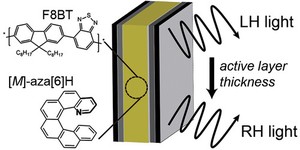Researchers store, retrieve data in sugar-based metabolomes
July 4, 2019 | 11:48
Companies: #brown-university

Researchers at Brown University have successfully stored digital images in metabolite molecules, paving the way for a potential future filled with sugar-based organic storage devices.
In computing, magnetic media - which took over from the punch-cards first introduced with the Jacquard loom - has long rained supreme as a non-volatile storage medium. For write-once read-many applications, optical storage enjoyed a brief period in the sun; for high-speed storage, NAND flash memory and its derivatives is rapidly taking over. There's interest, though, in more esoteric forms of storage: Back in April 2016 Microsoft began experimenting with using DNA as a storage medium, and now researchers at Brown University have declared success in storing digital data in artificial metabolomes - liquids comprised of sugars, amino acids, and other small molecules.
The team, led by Professor Jacob Rosenstein of Brown's school of engineering, successfully stored small digital images - up to two kilobytes each - into specially-created metabolite solutions then read them back out again successfully. Each metabolome was capable of holding between six and 12 bits of data; tiny droplets of each were placed on metal plates by a liquid-handling robot and allowed to dry; the data was then retrieved using a mass spectrometer.
It's not exactly an approach that scales to terabytes of data as yet, but its creators are hopeful. 'This is a proof-of-concept that we hope makes people think about using wider ranges of molecules to store information,' Professor Rosenstein claims of the study. 'In some situations, small molecules like the ones we used here can have even greater information density than DNA.
'Research like this challenges what people see as being possible in molecular data systems. DNA is not the only molecule that can be used to store and process information. It's exciting to recognize that there are other possibilities out there with great potential. A molecular hard drive or a chemical computer might still seem like science fiction, but biology shows us it is possible. We wanted to show in a mathematically precise way how to write and read digital data using some of the small molecules that our bodies use every day.'
The team's paper, Encoding Information in Synthetic Metabolomes, is available for open access in the journal PLoS ONE.

MSI MPG Velox 100R Chassis Review
October 14 2021 | 15:04








Want to comment? Please log in.